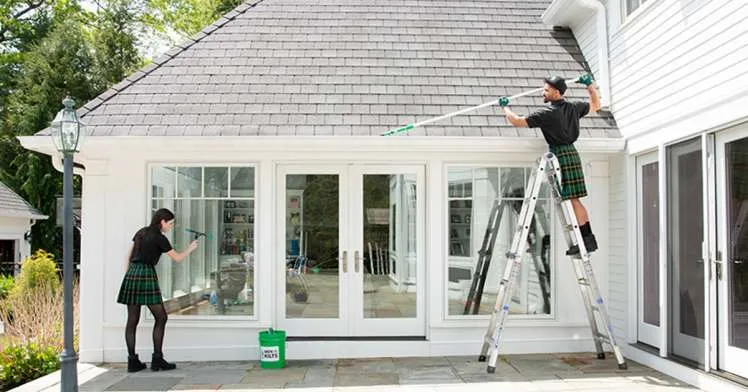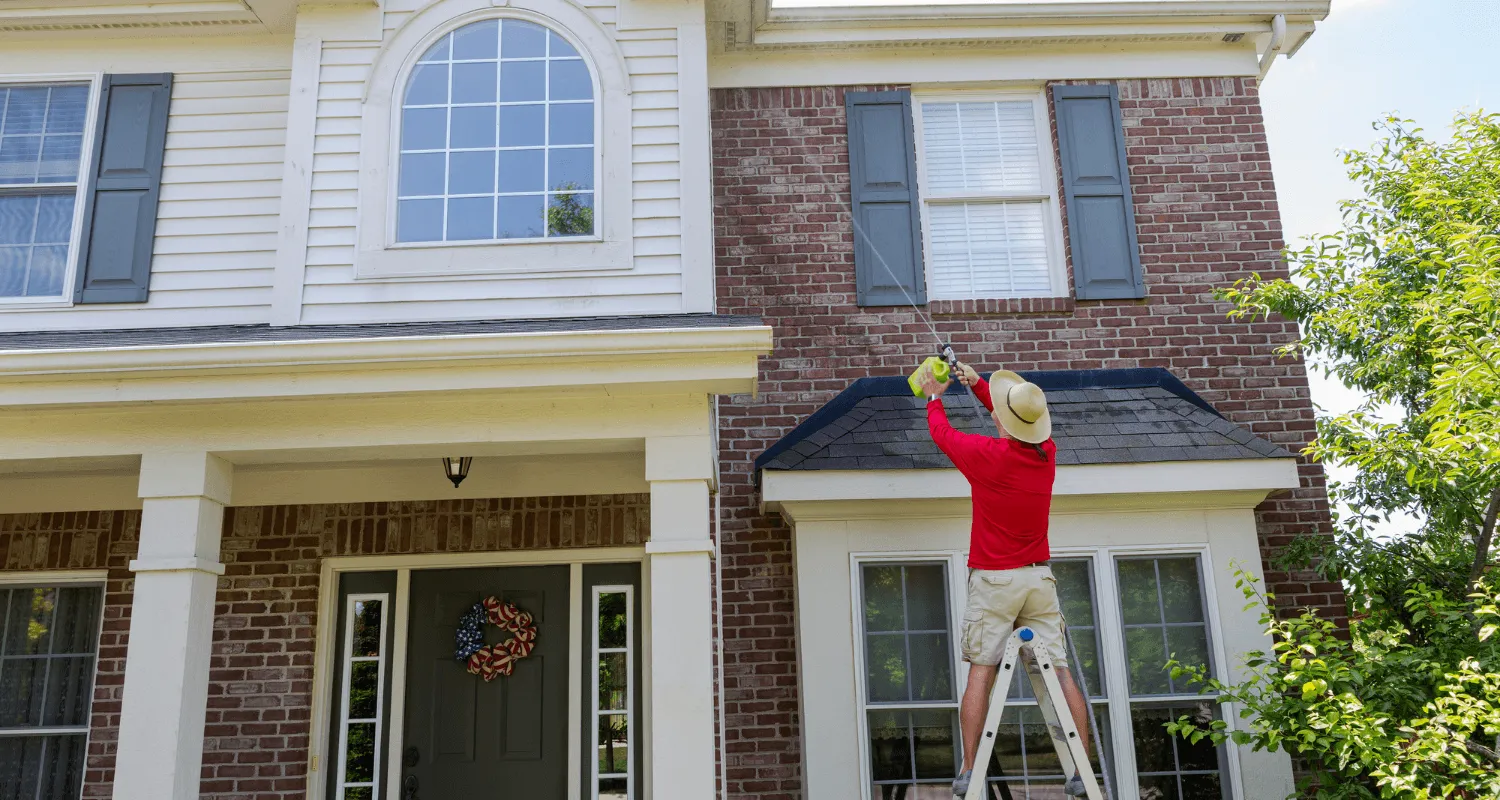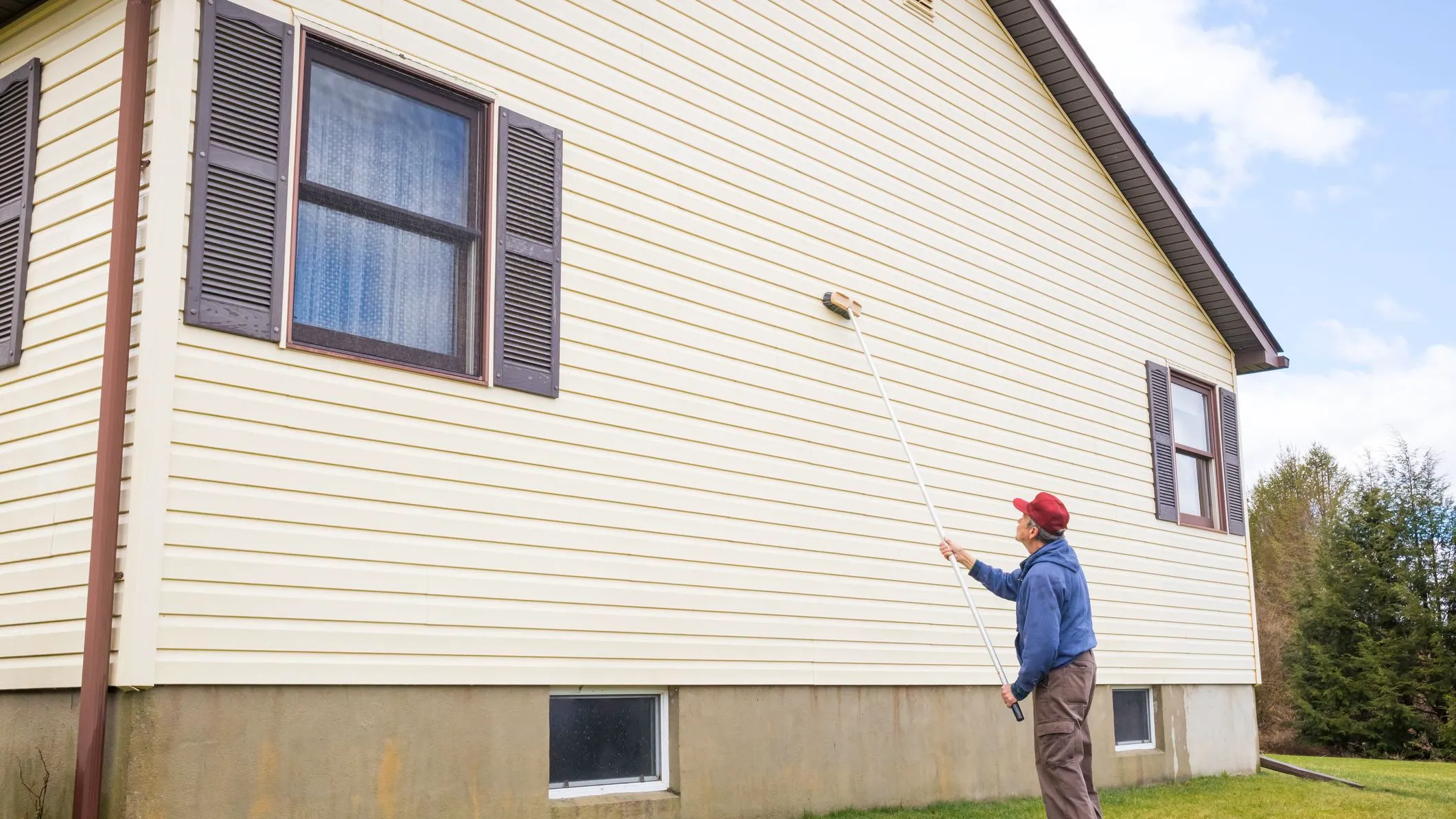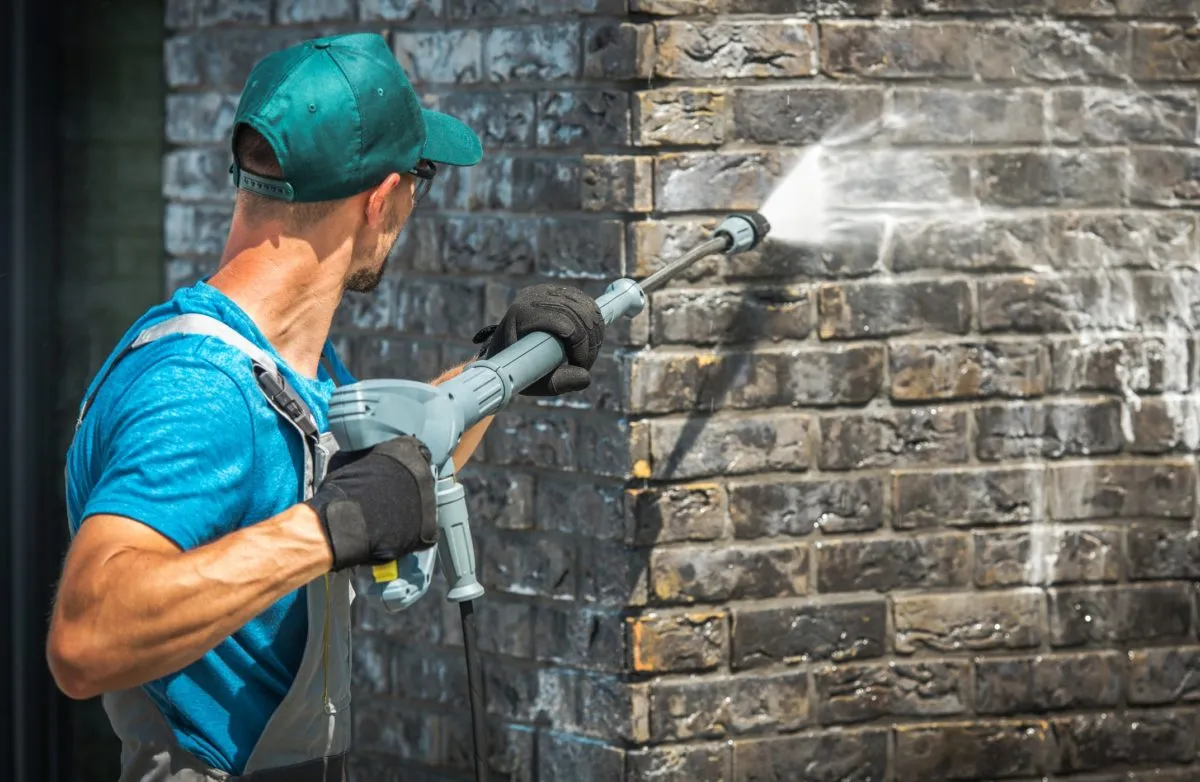
Exterior walls can get stained over time. But what’s the best way to clean them? An exterior that is dirty doesn’t only ruin the appearance of a building. This can cause the color scheme to become ineffective and signal that the building is aging.
A massive buildup of dirt and debris in the front of a house can lead to irreparable damage. It is not enough to just clean the exterior of your house. You need to choose the right method depending on the property’s front.
However, not only does the exterior matter. The outer shell of a building can become dirty and unable to perform its protective functions effectively over the long-term.
You can find out what type of wall cleaning is best for your substrate. Also, which methods are available. Avoid making mistakes and hire a professional.
Table of Contents
Causes of dirty exterior
Walls can become dirty for many reasons. These include corrosive pigeon drops, wind, rain and sun, moss and algae, mold, moisture, and/or vandalism. A protruding roof edge or other unfavorable house construction can encourage the accumulation of dirt particles, dust, and soot, and may lead to the formation of retracted dirt plumes.
Your front can also become extremely dirty from heating. Dark discolorations are a sign of fungal or algae growth. Algae form because of germs in the air. These germs stick to damp surfaces caused by nighttime condensing. Algae can also be formed by roller shutter boxes and other protrusions. The algae growth can also be affected by your personal ventilation habits. Oily or tar-containing soot sticks especially stubbornly to your facade, so it is important to clean it at very short intervals.
1. Your facade can be cleaned by hand or high pressure using high pressure.

Every day, the exterior of your house is exposed and can become damaged or contaminated by external influences. Organic causes, such as algae and fungi, can cause damage to your house’s front. The “attackers” include moisture, hail, wind and fine dust as well as temperature fluctuations.
Experts recommend that you use mineral or hydrophilic paints and plasters to prevent the growth of algae.
There are many ways to clean your facades
There are many ways to clean your house walls:
- Use a garden hose or hand to make various home remedies
- By water pressure using a high-pressure cleaner
- By steam jet or hot water
- With special facade cleaners
- Other options include dry ice blasting, dry ice blasting, dry laser blasting and low pressure blasting.
Private individuals often use the first and second methods, which you’ll learn more about later.
2. Use gentle home remedies to clean facades by hand

Hand cleaning is gentle and will not damage the environment. To get rid of dirt, use a brush and scrubber, or a water hose equipped with a brush attachment. You can either use a commercially available washing-up liquid, or you can add some soda powder or vinegar essence. Rinse well.
A “cleaning packet” is another option. Make a mixture of five liters’ water, 500g cornstarch, and 100g of washing soda. The mixture should be applied to the wall of your house. Leave it there for four hours, then rinse well.
Attention: If you have an older problem such as cracks or crumbling plaster, it is not recommended to clean the surface by yourself. Because of the risk that you will apply improperly, it could make the damage worse.
Also read, Best Ways on How to Remove old paint from walls: From Gentle to Complex How do you Brighten an Oak Kitchen?
3. High-pressure cleaners for cleaning facades: The advantages and disadvantages

You may need to use a high-pressure cleaner if you have more dirt to clean or if you want to save time and effort when cleaning your front.
You can either use pure water to pressure the dirt or add agents depending on the substrate.
Tip: You can start your work by setting the pressure washer to a low pressure. You can always raise the pressure later. For stubborn dirt, you can use suitable cleaning agents and brush attachments to improve the cleaning results.
There are advantages and disadvantages to using a pressure washer to remove dirt.
Advantages
- Cleanse thoroughly and effectively
- Less power consumption
- Time saved
- Telescopic tubes make it possible to view the ground from the ground.
- Very low water consumption
- High pressure cleaners can be used in a variety of ways
- You can also rent the device
- Cleaning by a professional is less expensive
Disadvantages
- Surfaces at risk of being destroyed
- After a storm, surface may be more vulnerable to damage
- Often, it is necessary to add chemical agent
- Prices for rental or purchase
4. Adapt methods and treatments to the substrate
The substrate is a major determinant of the cleaning agent or method used.
- High-pressure cleaners can clean facades that have been conventionally plastered using a lime-cement mix. High-pressure cleaning is also possible for brick, clinker and quarry stone facades. A mild cleaning agent can be used.
- It is best to clean synthetic resin plaster house walls using a soft brush and mild soapy waters.
- You can also use commercial algaecides if necessary. These facades should not be cleaned with high-pressure cleaners. Please use a low pressure spray or a long distance.
- Wood can be cleaned by hand. Add wood cleaner to the water and, if needed, some de-greaser. A high-pressure cleaner and dry ice are also options depending on the wood’s surface condition. You should then apply fresh wood protection.
- Acidic detergent can be used if you need to clean granite and brick surfaces.
- Soft limestone and marble can be cleaned with an alkaline-based cleaner.
- You can apply more friction and pressure on concrete slabs or bricks than you can on sandy plastered or rough surfaces.
5. Tips for safety and gentle cleaning
Cleaning the sides
Avoid these mistakes if you are trying to clean up your building’s facade by yourself. These are some tips that will make cleaning your building facade safe, simple and gentle.
- To ensure that the ladder stays stable when working at higher heights, a second person is required. Safety regulations must also be adhered to if you rent a scaffold, or a lift truck.
- Inconspicuously check beforehand whether the substrate can withstand the cleaning agent and method.
- Remember to close all windows and cover any openings. Also, disconnect all electrical equipment from mains before cleaning exterior of building.
- Avoid chemical and environmentally harmful additives whenever possible, especially for sensitive surfaces like untreated wood.
- When cleaning your front, it is best to work from the bottom upwards. However, special cleaning agents can work in the opposite direction so the agent doesn’t damage the surface. Follow the manufacturer’s directions.
Tip: If you have persistent moisture, it may be worth cleaning your house after a few rainy days. Dirt can be easier to remove.
Exterior cleaning professionals are expensive
person calculates costs
The cost of expert cleaning varies depending on how extensive the soiling is and where it is located. It is best to obtain multiple quotes. These items come into question:
- Travel costs
- Elevating platform or scaffolding
- Hours of operation
- Cleaning agent
- Impregnation
- Pollutant disposal
Cost per square meter can reach up to 9 USD, including time spent and amount of agents. The substrate’s porosity is a major factor in this. A lifting platform can be used up to 200 USD for heights of 10 m, while scaffolding can be used up to 20 m. It costs between 5-10 dollars per square meter.
Our reconnendations:
- Avoid using a pressure washer when it is raining or damp.
- You will need the support of a second person to work at high heights.
- Lock the doors and windows. Plug in a power strip and shut off the electrical outlets.
- Take down all decorations and plants.
- Check the cleaning products and the water pressure in an inconspicuous location.
- During spring or fall, you should clean your exterior on a sunny, but not too hot, day.
- The cleaning process will be sped up by this method.
- Additionally, you should clean after rain. Wet walls make dirt easier to remove.
FAQ
What are the best ways to clean walls?
A brush and a garden hose can be used to clean the house walls.
What is the difference between the surface and the interior?
The hardness of the substrate, such as brick, synthetic plaster, or wood, will determine the methods and cleaning agents.
What is the cost of professional cleaning?
The cost of hiring a professional cleaner to clean your home will depend on the amount of dirt and the condition of the surface.